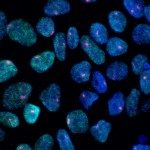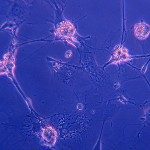The mammalian gastrointestinal tract hosts a community of diverse micro-organisms, including bacteria, archea, fungi, and viruses. Bacterial products, such as metabolites and cell wall fragments, are implicated in host metabolic functions. In addition, the gut microbiota influences the immune and central nervous systems, and it has emerged as a key regulator of brain development and the modulation of behaviors, including stress and anxiety, often in a sex-specific manner. Disruption of gut microbiota–brain interactions contribute to the pathogenesis of neurodevelopmental and psychiatric disorders in animal models. Gabanyi et al. (1) show that bacterial peptidoglycans, a by-product of bacterial cell wall degradation during cell division and cell death, directly inhibit the activity of feeding-promoting neurons in the hypothalamus and ultimately decrease appetite and body temperature, mostly in female mice. This finding may open new approaches for the treatment of metabolic disorders, including obesity.
© Christine Schmitt, Meriem El Ghachi, Jean-Marc Panaud
Bactérie Helicobacter pylori en microscopie électronique à balayage. Agent causal de pathologies de l'estomac : elle est responsable des gastrites chroniques, d'ulcères gastriques et duodénaux et elle joue un rôle important dans la genèse des cancers gastriques (adénocarcinomes et lymphomes).
News









